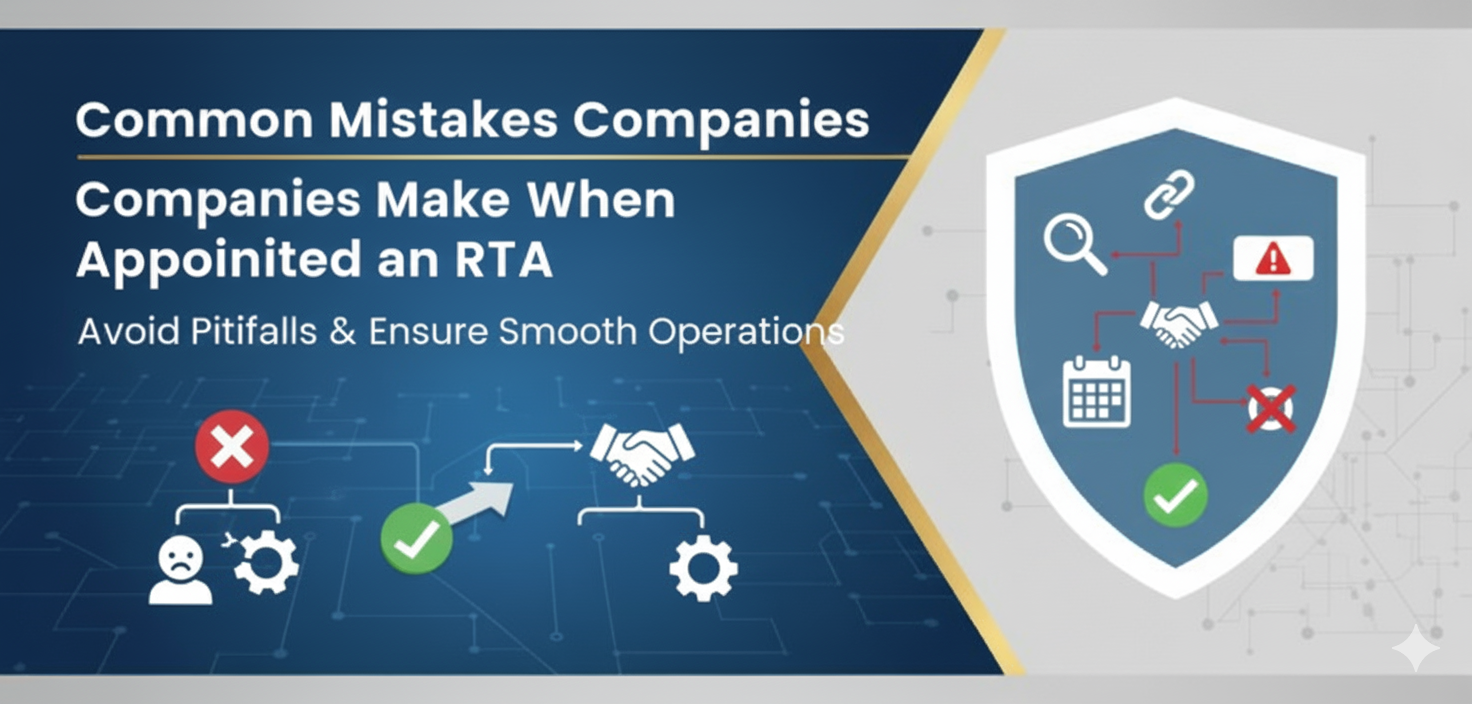Appointing a Registrar and Transfer Agent (RTA) is a foundational step for managing your company's securities. This partnership impacts your compliance, shareholder relations, and operational efficiency. However, several common pitfalls can turn this critical decision into a costly mistake.
Here’s what to watch out for to ensure your RTA partnership is an asset, not a liability.
1) Appointing an Unregistered RTA
Many companies overlook verifying whether the RTA is properly registered with SEBI under the "Registrars to an Issue and Share Transfer Agents Regulations, 1993." Appointing an unregistered agent invalidates critical processes like demat onboarding and ISIN issuance. Always confirm SEBI registration before proceeding.
2) Delaying the Appointment Until It's Urgent
Companies often wait until they need to issue securities or enable transfers before appointing an RTA. However, ISIN generation and setting up demat infrastructure require significant preparation. Delayed appointments often result in deadline pressure under Rule 9B (mandatory demat for private companies), leading to rushed compliance and avoidable mistakes.
3) Mishandling the Tripartite Agreement
The tripartite agreement among the Issuer, RTA, and Depository (NSDL/CDSL) is legally vital for demat connectivity. Common mistakes include using incorrectly stamped agreements or missing authorized signatures. Such errors jeopardize onboarding and can delay your company's eligibility for dematerialisation.
4) Lapses in Shareholder KYC and Folio Management
SEBI mandates that RTA processes—like demat requests or transfers—are actioned only for folios with validated PAN, KYC, and nomination details. Missing KYC or invalid folios often lead to rejections and investor dissatisfaction. Ensure your appointed RTA has strong workflows to flag and resolve these gaps proactively.
5) Treating Demat Compliance as a One-Time Project
Dematerialization is an ongoing system, not a single event, regardless of your company's status. While Rule 9B applies to private companies and Rule 9A to unlisted public companies, listed companies follow stringent SEBI regulations. A common mistake across all is treating compliance as a one-off project. Companies get the ISIN and then fail to maintain demat-only processes for future transfers, bonus issues, or buybacks. Continuous compliance and periodic reconciliation must remain ongoing commitments.
6) Choosing Based on Cost Rather Than Capability
RTAs vary significantly in their systems and expertise. Selecting purely on fees can lead to poor outcomes, compliance lapses, and rework. Instead, evaluate their track record in managing SEBI filings, depository reporting, and responsiveness to investor queries.
Conclusion
Avoiding these pitfalls ensures your RTA partnership delivers accuracy, compliance, and peace of mind. From validating SEBI registration to enforcing continuous demat processes, a well-chosen RTA is an asset—not just a vendor. For seamless onboarding and investor-grade service, Nextgen Share Registry Pvt Ltd (Nextgen RTA) offers the right blend of regulatory alignment and operational strength.
ABOUT NEXTGEN
At NextGen Share Registry, we specialize in ISIN generation for equities, preference shares, debentures, and AIFs with unmatched speed and accuracy. Our expertise extends to handling complex corporate actions and seamlessly organizing e-voting events for issuer companies, ensuring a hassle-free experience with the fastest turnaround time in the industry.

